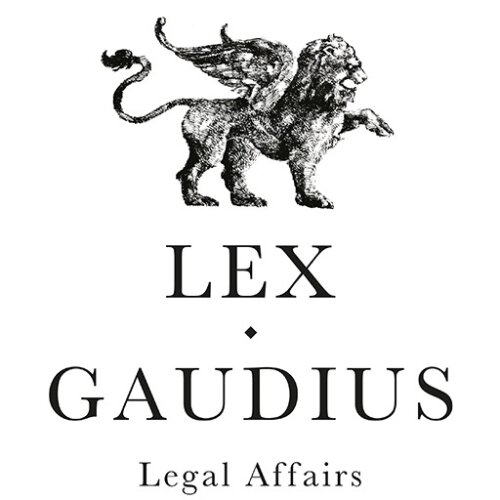Best Equity Capital Markets Lawyers in Helsinki
Share your needs with us, get contacted by law firms.
Free. Takes 2 min.
List of the best lawyers in Helsinki, Finland
About Equity Capital Markets Law in Helsinki, Finland
Equity Capital Markets (ECM) law in Helsinki, Finland, governs how companies, investors, and institutions operate in the raising and trading of equity securities. Helsinki, as the capital and financial hub of Finland, is home to the Nasdaq Helsinki stock exchange, where various public offerings and equity transactions take place. ECM law in Helsinki involves legal frameworks governing the issuing of shares, initial public offerings (IPOs), secondary offerings, rights issues, private placements, and all related regulatory compliance. Finnish ECM practices are shaped by both national regulations and wider European Union legislation, creating a robust and transparent framework for investment and company growth.
Why You May Need a Lawyer
There are several scenarios where professional legal advice is essential in Equity Capital Markets in Helsinki. If you are a company looking to go public, conduct a secondary offering, or issue new shares, legal support is crucial to comply with complex regulatory requirements. Investors and shareholders may also need legal assistance to protect their interests when participating in offerings or when dealing with disputes relating to share ownership. Multinational corporations, private equity funds, and venture capitalists often require legal guidance to navigate cross-border transactions and ensure proper due diligence. Additionally, compliance with securities regulations, corporate governance, and disclosure duties are all areas where a knowledgeable ECM lawyer can offer significant value and risk mitigation.
Local Laws Overview
Equity Capital Markets in Helsinki are regulated by a combination of local Finnish laws, rules of the Nasdaq Helsinki, and EU regulations such as the Market Abuse Regulation (MAR) and Prospectus Regulation. The key Finnish legislation includes the Securities Markets Act and the Limited Liability Companies Act. These laws cover public offerings, the conduct of listed companies, disclosure of inside information, and shareholder protection. Listing rules specific to Nasdaq Helsinki mandate ongoing reporting, listing requirements, and corporate governance standards. Any national or European law changes are closely observed and incorporated into local practices, ensuring that Helsinki remains a reputable and attractive market for raising capital.
Frequently Asked Questions
What is Equity Capital Markets law?
Equity Capital Markets law encompasses the legal framework that regulates the issuance and trading of equity securities, such as shares, on stock exchanges and the processes involved in raising capital through public or private offerings.
Who regulates Equity Capital Markets in Helsinki?
ECM activities in Helsinki are regulated primarily by the Finnish Financial Supervisory Authority (FIN-FSA), the Ministry of Finance, and Nasdaq Helsinki, as well as by EU-wide financial directives and regulations.
What is required for a company to go public in Helsinki?
A company must meet Nasdaq Helsinki's listing requirements, prepare a prospectus compliant with the EU Prospectus Regulation, and obtain approvals from regulatory authorities. Legal due diligence and corporate restructuring may also be needed.
What are the ongoing obligations for listed companies?
Listed companies in Helsinki must comply with continuous disclosure obligations, maintain corporate governance standards, report financial results periodically, and adhere to rules against market abuse and insider trading.
How does Finnish law protect shareholders?
Finnish law provides protections for shareholders through mandatory disclosure, rules on equal treatment, rights to participate in general meetings, and remedies for unfair practices.
Can foreign companies issue shares in Helsinki?
Yes, foreign companies can list on Nasdaq Helsinki, provided they meet the exchange's standards and comply with Finnish and EU regulations.
What is a prospectus and when is it required?
A prospectus is a legal document providing information about a securities offering. It is generally required for public offerings unless certain exemptions apply, as outlined by EU and Finnish regulations.
What role does the Finnish Financial Supervisory Authority play?
The FIN-FSA supervises the financial markets, ensures compliance with securities laws, reviews prospectuses, and monitors market integrity and transparency.
What are the penalties for non-compliance in ECM transactions?
Penalties include fines, suspension of trading, revocation of licenses, and, in severe cases, criminal charges for offenses such as insider trading or market manipulation.
Why should I consult a lawyer before an ECM transaction?
A lawyer ensures that all actions comply with applicable laws, mitigates regulatory risks, handles complex documentation, and protects your legal and financial interests throughout the transaction.
Additional Resources
Several reputable resources and organizations are available to assist with Equity Capital Markets matters in Helsinki:
- Finnish Financial Supervisory Authority (FIN-FSA)
- Nasdaq Helsinki
- Ministry of Finance, Finland
- Finnish Bar Association
- European Securities and Markets Authority (ESMA)
- Chamber of Commerce Finland
Next Steps
If you are considering any Equity Capital Markets activity in Helsinki, start by gathering all relevant information about your potential transaction or inquiry. Contact a licensed law firm specializing in capital markets or securities law in Helsinki. Prepare documentation about your company's structure, proposed securities activity, and any previous regulatory filings or correspondence. When meeting with your lawyer, clarify your goals and present your questions about the legal process. An experienced ECM lawyer will guide you through the applicable regulations, help prepare the necessary documentation, and represent your interests with regulatory bodies or market participants. Early legal involvement ensures smoother transactions and mitigates the risk of non-compliance or costly delays.
Lawzana helps you find the best lawyers and law firms in Helsinki through a curated and pre-screened list of qualified legal professionals. Our platform offers rankings and detailed profiles of attorneys and law firms, allowing you to compare based on practice areas, including Equity Capital Markets, experience, and client feedback.
Each profile includes a description of the firm's areas of practice, client reviews, team members and partners, year of establishment, spoken languages, office locations, contact information, social media presence, and any published articles or resources. Most firms on our platform speak English and are experienced in both local and international legal matters.
Get a quote from top-rated law firms in Helsinki, Finland — quickly, securely, and without unnecessary hassle.
Disclaimer:
The information provided on this page is for general informational purposes only and does not constitute legal advice. While we strive to ensure the accuracy and relevance of the content, legal information may change over time, and interpretations of the law can vary. You should always consult with a qualified legal professional for advice specific to your situation.
We disclaim all liability for actions taken or not taken based on the content of this page. If you believe any information is incorrect or outdated, please contact us, and we will review and update it where appropriate.
















